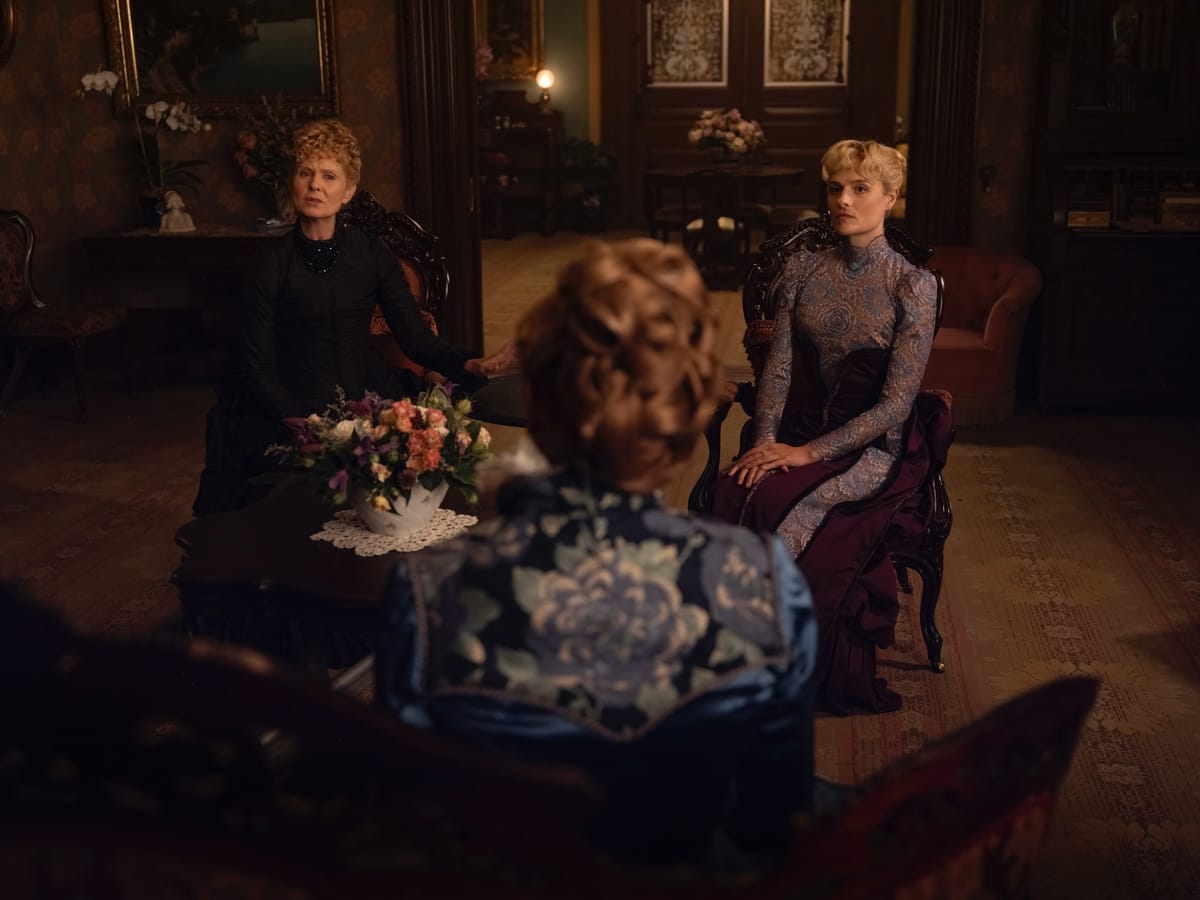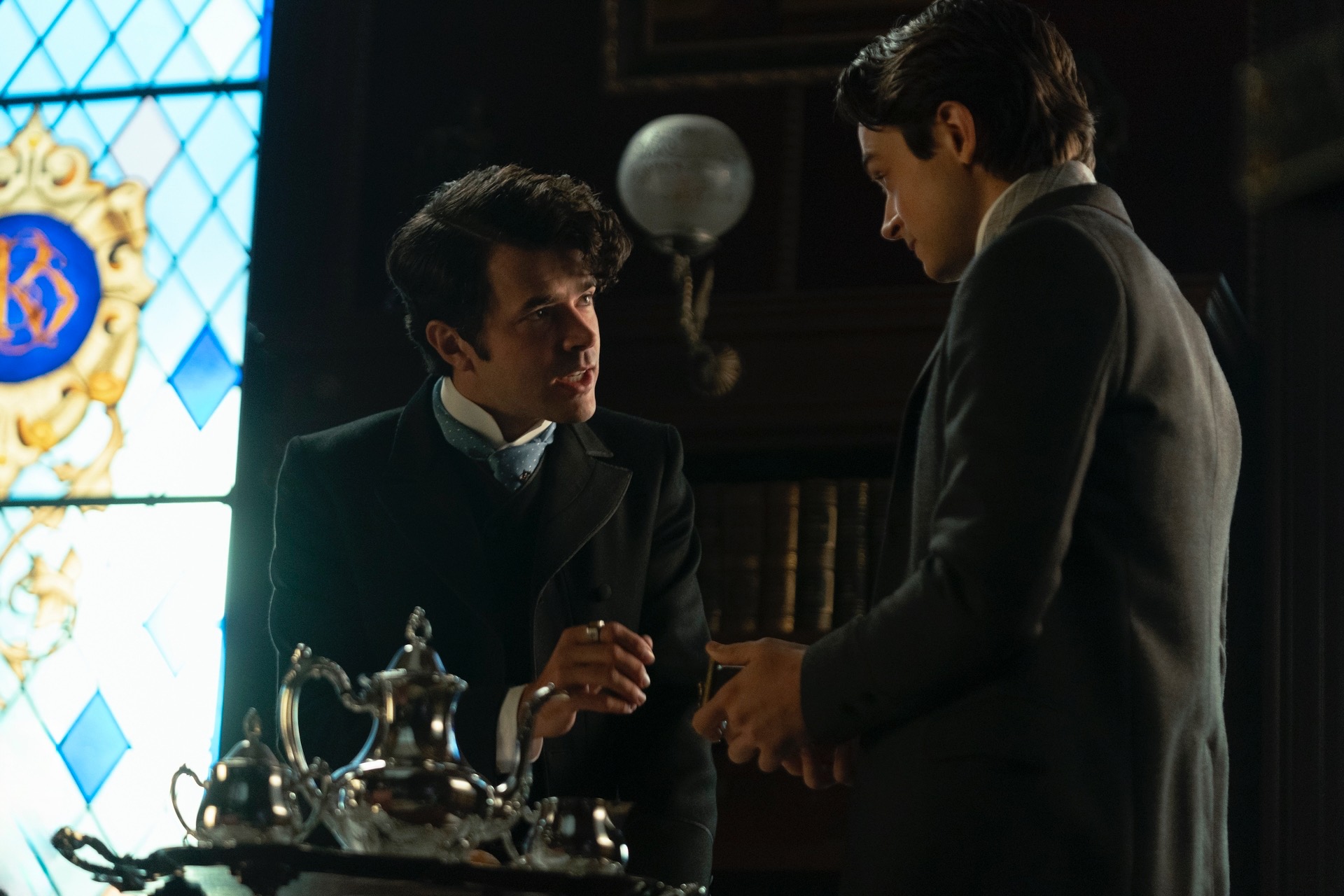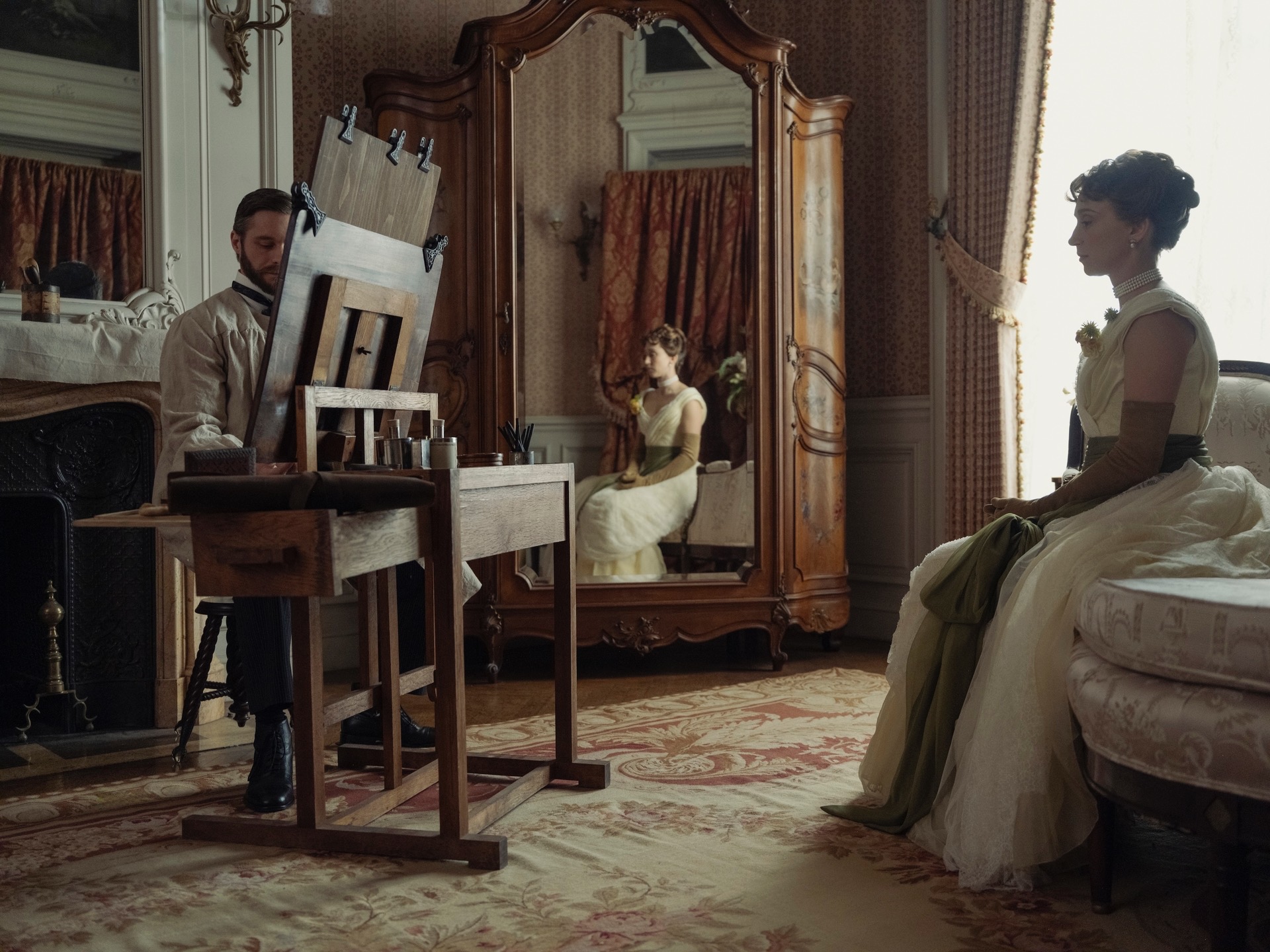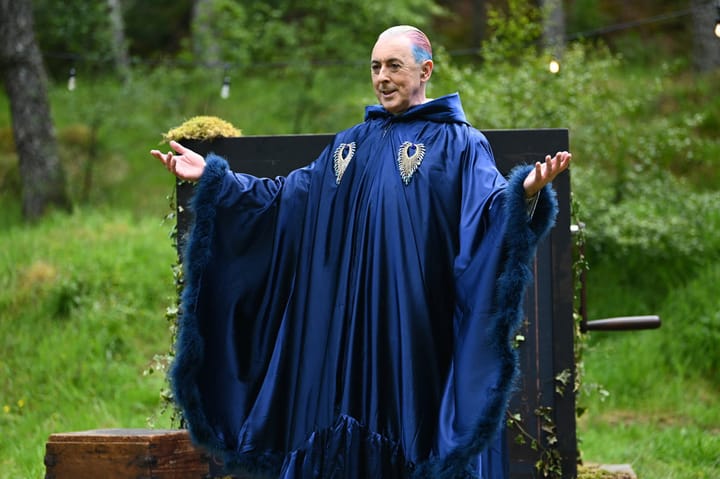Review: The Gilded Age, "Who Is In Charge Here?" | Season 3, Episode 1
A nice house, money, people coming to your dinners, being invited by others—what more could anyone need?

Welcome back to Episodic Medium’s coverage of HBO period drama The Gilded Age, which returns for its third season. This first review from Donna Bowman is free for all, but subsequent reviews are only for paid subscribers—to keep reading and join the conversation, become one today. Yearly subscriptions are 10% off through July 1—click here for our full summer schedule.
Welcome back to 61st Street! It’s late winter 1884, few months after that momentous day in October 1883 when the Met and Academy dueled on their opening nights. Much was put in motion in those eventful late Season 2 episodes, so perhaps we shouldn’t be surprised that Season 3 premiere mostly catches us up on those storylines. We do embark on a couple of new ventures, and the episode ends on two dramatic developments. But it’s no “You Don’t Even Like Opera,” last season’s premiere, which introduced Luke Forte, Dashiell Montgomery, and Bertha’s ambitious plan to humiliate Mrs. Astor and eclipse the Academy. If there’s a momentous historical event we’re building towards, it hasn’t yet appeared.1
Nevertheless, the episode opens with a genuinely thrilling change of scenery. Welcome to the Old West! Under a moody version of opening theme evoking wide-open vistas, George Russell and his secretary Clay travel by dusty stagecoach to Morenci, Arizona. You know what they could use out there? Trains! I love that we start the season on the last frontier of rail barony. Somebody’s gonna lay those tracks and get that business and sell those stocks, and George is moving fast. Standing in his way are the copper mines and the men who run them; if the New York bigwig is going to get his desired route, they demand to be very well paid. Like the striking workers last season, they know their power is in solidarity. “I don’t want to meet a bunch of stupid clodhoppers all at once,” George grumbles, but the miners have already organized.
Meanwhile, in an unexpectedly heavy snow, Ada flexes her power as the financial head of the van Rhijn household by holding a temperance meeting, to the horror of Agnes who (of course) won’t stop rolling her eyes and needling her sister about it. Ada’s emergence from the shadows of spinsterhood was the feel-good story of Season 2, but here it’s an open question whether this new enthusiasm is well chosen. She’s run through a few charitable fads already, as Agnes wastes no time pointing out, and the puritanical premise of this one is bound to put a damper on dinnertime going forward. And how much does it really honor Luke’s memory? After all, he drank wine and served it to thousands at Communion—“just like Jesus!”

Nobody in their circle seems very excited about the temperance cause; Oscar, Marian, and Aurora Fane sit dutifully through the presentation, flinching a bit when the speaker informs them that any alcohol partaker will burn in the “fury of hell.” That’s especially bad news for Oscar, who is drowning his sorrows after nearly ruining the family. Despite the family’s various ideas for getting him off his duff, he finds the thought of going into some kind of business unimaginable (“I was born to be rich, not to make a fortune,” he tells Marian ruefully), and his Season 2 efforts at courting rich debutantes were nothing short of disastrous. Ada will house and feed him, but draws the line at giving him an allowance. The thought of Oscar having to go back on the marriage market also makes me want to have my dinner and multiple rounds of whiskey sent up to my room on a tray.
Oscar feels ruined because he has position but no money—and money is what makes a man matter these days. It’s different for women, as Aurora Fane is about to find out. Her husband tells her about his adulteries and demands a divorce. He seems to think she has no options; infidelity is the only grounds to dissolve a marriage, and he’s done it, and he wants to be free. Financially she’ll do fine. So what’s the issue? He doesn’t get it. She’ll lose her social position and her agency, all at once. Despite Ada’s commitment to stand by Aurora, Agnes isn’t ready to buck social norms, no matter how close a friend might be involved. Wouldn’t she’d be happier alone, in Newport where Charles wants to park her for a divorce proceeding, out of the spotlight of the New York press and conveniently unavailable for dinner parties?
And while Marian insists Larry wait until the sting of her latest failed engagement has faded, Larry urges his sister Gladys not to wait for her father to return home and deflect Bertha’s schemes. She’ll be pimped out to the Duke of Buckingham against her will, backed into a corner based on the rumors her mother is planting in the society pages about their blossoming connection. Bertha makes it clear that Gladys’ happiness is not her priority; it is the “byproduct of a well-ordered life,” not something to be pursued as a goal. So in the second of the episode’s dramatic closing moments, Gladys packs her back and slips away to elope with Billy Carlton.

Although there are no grand balls and only a glimpse of the decked-out crowd at the Met for La Traviata, a special historical guest fulfills my quota of elegance and celebrity: John Singer Sargent, fresh off his notorious Portrait of Madame X. I’ll be straight with you, dear reader: I find Gladys trying. She is out in society and not wearing her hair down in ringlet curls anymore, but still simpers and lacks gravitas. Yet she has never looked more lovely as she does sitting in the light, impatient with Sargent’s progress. As Bertha’s plans for her seem more and more indefensible, my sympathy for her plight begins to grow.
Meanwhile, my interest in the story of Peggy Scott’s tubercular cough shot up to 10 out of 10 when Agnes summons a doctor who refuses to treat her on the basis of her race. Agnes grimly promises to ruin Dr. Lewis, and I hope she does. And this season’s upstairs-downstairs tension begins with Jack’s uncomfortable business partnership with Larry Russell. What’s a poor alarm clock improver to do in this situation? He still has to serve Larry at dinner. At the Russell house, Larry calls for coffee for the both of them, and Jack awkwardly accepts (according to Adelheid, he should have refused to save the Russell footman the humiliation). Worse than the breach of decorum is that Larry insists on being the public face of the partnership even though he doesn’t understand the technical side of the invention.
Agnes’ question in the title, “Who is in charge here?!”, resonates on both sides of the street. Does Bertha or George rule over their daughter—or will she be able to choose her own life? Is Larry still in charge of Jack even though they meet on the practical field of business? Should Marian and Oskar let their social embarrassments, small and large, dictate their future plans? Who gets to say whether Aurora and Charles stay married? And shouldn’t Agnes demand that a doctor in her own house fulfill his Hippocratic Oath, for God’s sake? Tune in next week to see how that portrait comes out …
Stray observations
- As the servants throw snowballs in the street, a snow roller drives past, a technology designed to pack down deep snow and make it possible for horses to to use the road (sometimes drawing sleighs as we see later).
- Peggy now can take the trains across the Brooklyn Bridge on her way back to the Van Rhijn house! Huzzah!
- Agnes softens on Ada’s flightiness with regard to her philanthropic endeavors—the Charity Organization Society, the settlemen house movement, now temperance—when Ada tells her how hard it is to welcome a new day unless you have a purpose. I’m not sure about Ada’s infatuation with temperance either, but I can’t deny that it’s preferable to suicidal ideation.
- Morenci, Arizona is still the site of a large copper mine, open-pit now instead of underground as in the 1880s. George is hoping to run a southern line from Chicago to Los Angeles right through the mining land.
- Marian has a new teaching position at the Female Normal and High School (which will later become part of Hunter College). While Agnes disapproves, she does surprise the family by taking an interest in Marian’s involvement with the American Woman Suffrage Association, a rival to Elizabeth Cady Stanton and Susan B. Anthony’s National Women Suffrage Association. The two groups would merge in 1890.
- “Let the sober circus begin!”
Unless we count a brief mention of a run on the Metropolitan National Bank, part of the Panic of 1884, triggered by rumors that its president was speculating in railroad securities, the reason George has to hurry back to New York. ↩




Comments ()